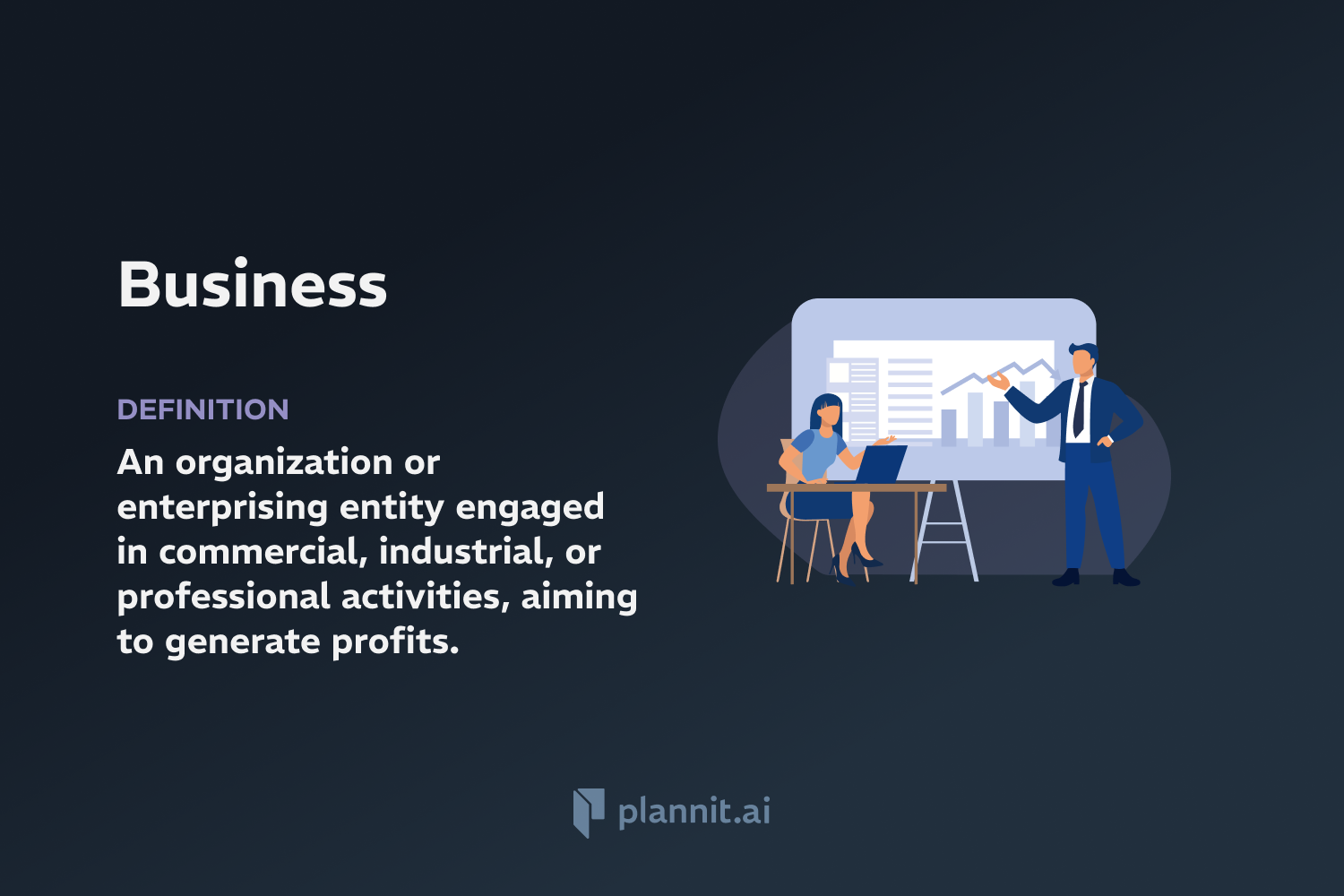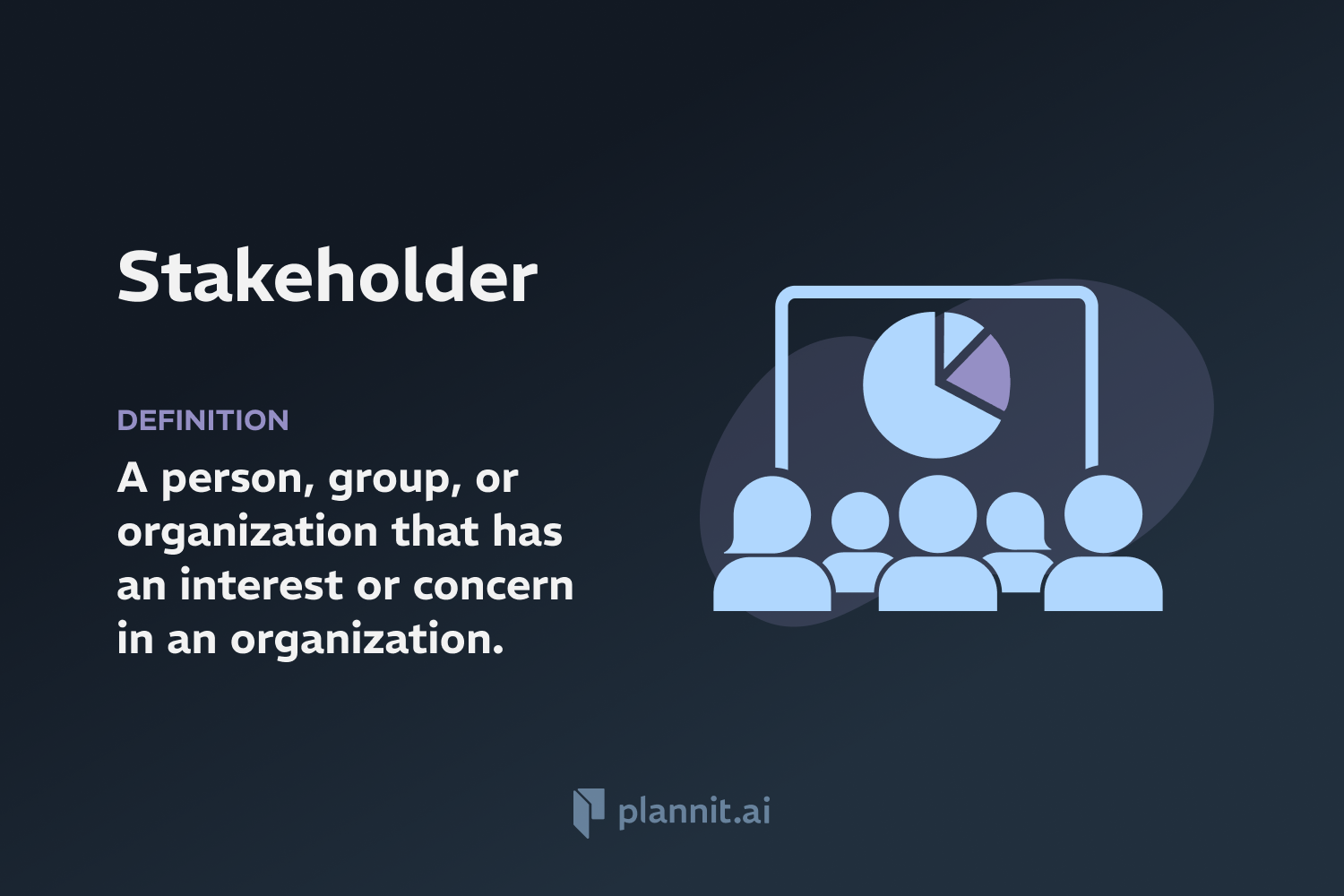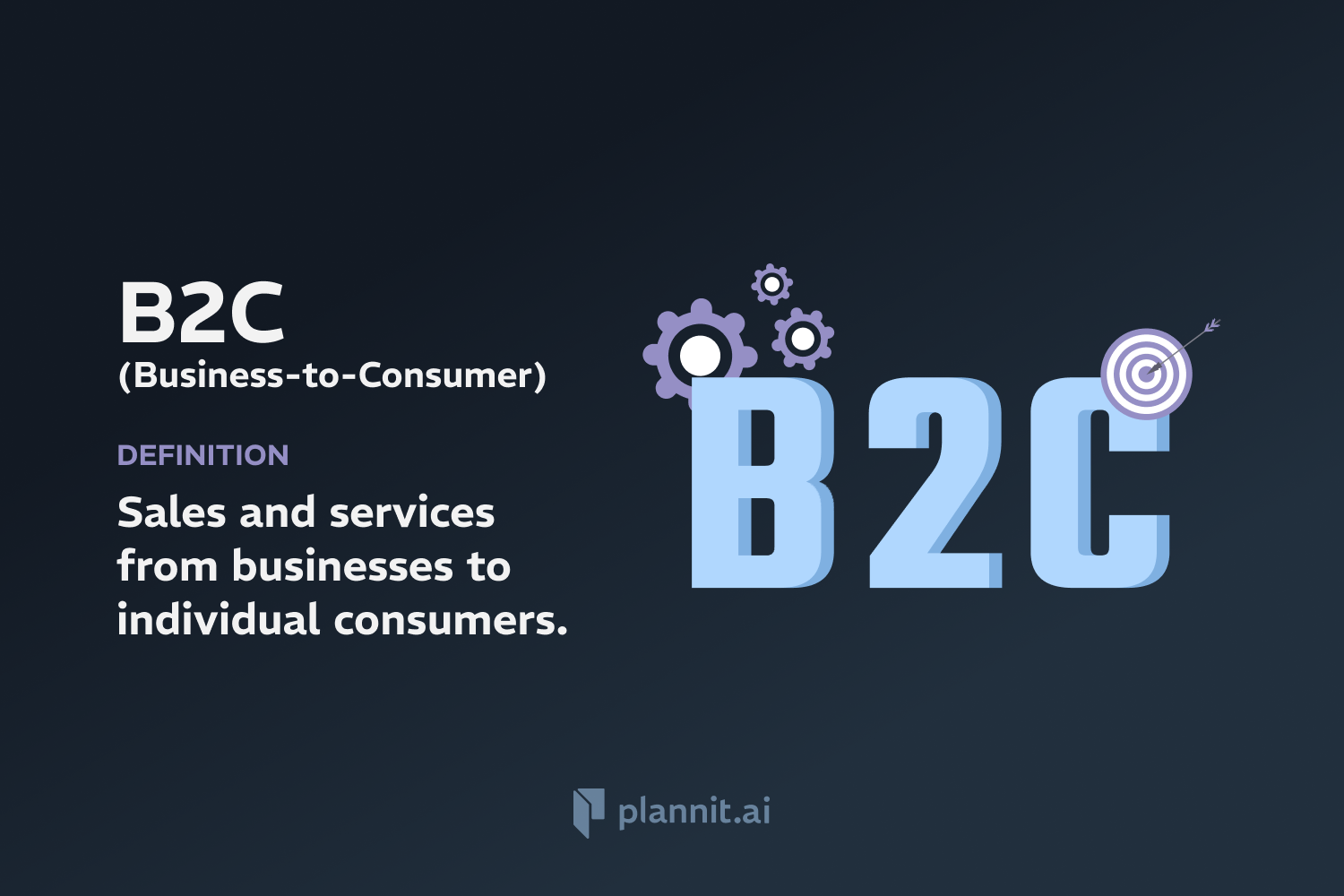Need Help With Your Business Plan?
Answer tailored questions and get a detailed business plan in minutes.
Business: Definition & In-Depth Explanation

Definition:
Business refers to an organization or enterprising entity engaged in commercial, industrial, or professional activities. Businesses can be for-profit entities or non-profit organizations that operate to fulfill a charitable mission or further a social cause. The primary goal for most businesses is to generate profits by providing goods or services that meet the needs of customers.
Context of Use:
Businesses are integral to the economy, providing goods and services, creating jobs, and contributing to national growth and development. They range from sole proprietorships to large international corporations and operate in a variety of industries including agriculture, manufacturing, technology, and services.
Purpose:
The main purpose of a business is to produce and distribute products or services that satisfy consumer needs and desires. In doing so, businesses strive to generate enough revenue to cover costs and yield a profit that can be reinvested for growth or distributed among owners or shareholders.
Example:
Small Business: A local bakery that provides bread and pastries to the community.
Large Corporation: A multinational technology company that designs, manufactures, and sells consumer electronics.
Related Terms:
Entrepreneur: An individual who founds and runs a small business, assuming all the risks and rewards of the venture.
Corporation: A legal entity that is separate and distinct from its owners, offering limited liability to its shareholders, and having a structured management.
Market: A set of potential buyers for a product or service.
FAQs:
1. What are the different types of business structures?
A: Common business structures include sole proprietorships, partnerships, corporations, and limited liability companies (LLCs), each with different implications for liability, taxation, and management.
2. How does a business generate revenue?
A: Businesses generate revenue primarily through the sale of goods and services, licensing, and other commercial transactions.
3. What is the role of management in a business?
A: Management in a business is responsible for planning, organizing, directing, and controlling the business's resources to achieve specific goals.
4. Why is marketing important for a business?
A: Marketing is crucial as it helps to identify customer needs, develop products that fulfill those needs, communicate with potential customers, and ultimately drive sales.
5. What are the challenges faced by businesses today?
A: Modern businesses face numerous challenges including economic fluctuations, technological changes, regulatory environments, competitive pressures, and changing consumer preferences.
Get funding with a business plan that will impress investors.
Starting a New Business?



